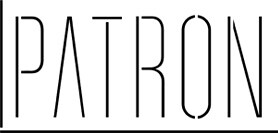I can’t make you love me
February 3–March 30, 2024
1612 W Chicago Avenue
Chicago, IL 60622
United States
Hours: Tuesday–Saturday 11am–6pm
T +1 312 846 1500
info@patrongallery.com
“You mean more to me than any scientific truth.” —Kris Kelvin, Solaris
PATRON is proud to announce our third solo exhibition with New York-based artist Brittany Nelson (b. 1984). Nelson’s conceptual practice explores how science fiction, and the ongoing pursuit of space exploration, offer venues for the consideration of new social possibilities outside the limitations of heteronormative society. Utilizing analog chemical photographic techniques, historical science fiction and its archive, and visual culture from recent NASA missions, Nelson suggests how extraterrestrial, or non-human actors can function as proxies for queer life. I can’t make you love me pulls open the human, and often deeply romantic quests at the heart of astronomical discovery, both real and imagined.
Since 2020, Nelson has researched an extensive archive of letters between science fiction writer Alice B. Sheldon (under the male pseudonym; James Tiptree Jr.) and novelist Ursula Le Guin between 1971 and 1976. Their exchange held space for real-life para-fiction. While withholding her true gender identity, Tiptree’s flirtatious fantasies were received and reciprocated by Le Guin—Tiptree would eventually reveal her true gender identity to Le Guin in 1976, and subsequently see Le Guin as a confidant “Ursula, Ursula I am petrified—will they take it as ‘deception’”?
The exhibition opens with the persistent melody of everything but the signature is me (2023), an automaton typewriter, programmed by Nelson to perpetually dictate Tiptree’s excerpted term of endearment for Le Guin; “Starbear.” This coded evidence of Tiptree’s unrequited desire is extracted from their original context, scattered over the page in blue ink. The incessant transfer of the name by a non-human writer, suggests how Tiptree’s own use of a pseudonym functions as a metaphor. The letter, much like the format of science fiction, is a truth written in the present to apply to a future sense.
Nelson further collapses past, present, and future in her Solaris series, expansive gelatin silver prints developed from stills of Andrei Tarkovsky’s 1972 film. Solaris narrates the plight of Kelvin, a cosmonaut who is pulled into the waking nightmare that has befallen his space station comrades as time and psychological acuity become increasingly warped. Nelson took screenshots from the film and rephotographed them onto 35mmx film at high speeds, a process which accentuates the silver grain of the image. The textural, impressionistic prints, developed with one of the last remaining Fotar Enlargers from the 1950’s, position us within the film itself, vulnerable, gazing outward onto the swirling waters of a foreboding form of extraterrestrial life. Solaris’s swirling waters of the ocean planet, like the mist-moody landscapes of Romantic painters, suggest that the scene is not an image of an experienced reality, but an existential experience of loneliness and mortality.
Functioning as a coda, and bringing us to the present is I can’t make you love me, a single channel video, titled after Bonnie Raitt’s 1991 sentimental ballad. Edited from Nelson’s first-hand documentation during a research trip over the summer of 2023 at Hat Creek Radio Observatory in Northern California, the film tracks the artist’s own encounter with an isolated astronomical telescope array (Allen Telescope Array or ATA), technologies specifically designed for the Search for Extraterrestrial Intelligence (SETI). In the film, a presumed human subject sweeps spotlights across the open fields of the observatory, glimpses and fragments of the satellites appear as outlines in the dark as they themselves contemplatively yearn for the faintest glimmer of data to affirm their existence. Brittany Nelson: I can’t make you love me collapses and expands Nelson’s poetic parallels between Tiptree’s own closeted desire, the speculative space of scientific discovery, and the ongoing human quest to find, and communicate with, someone like us.



